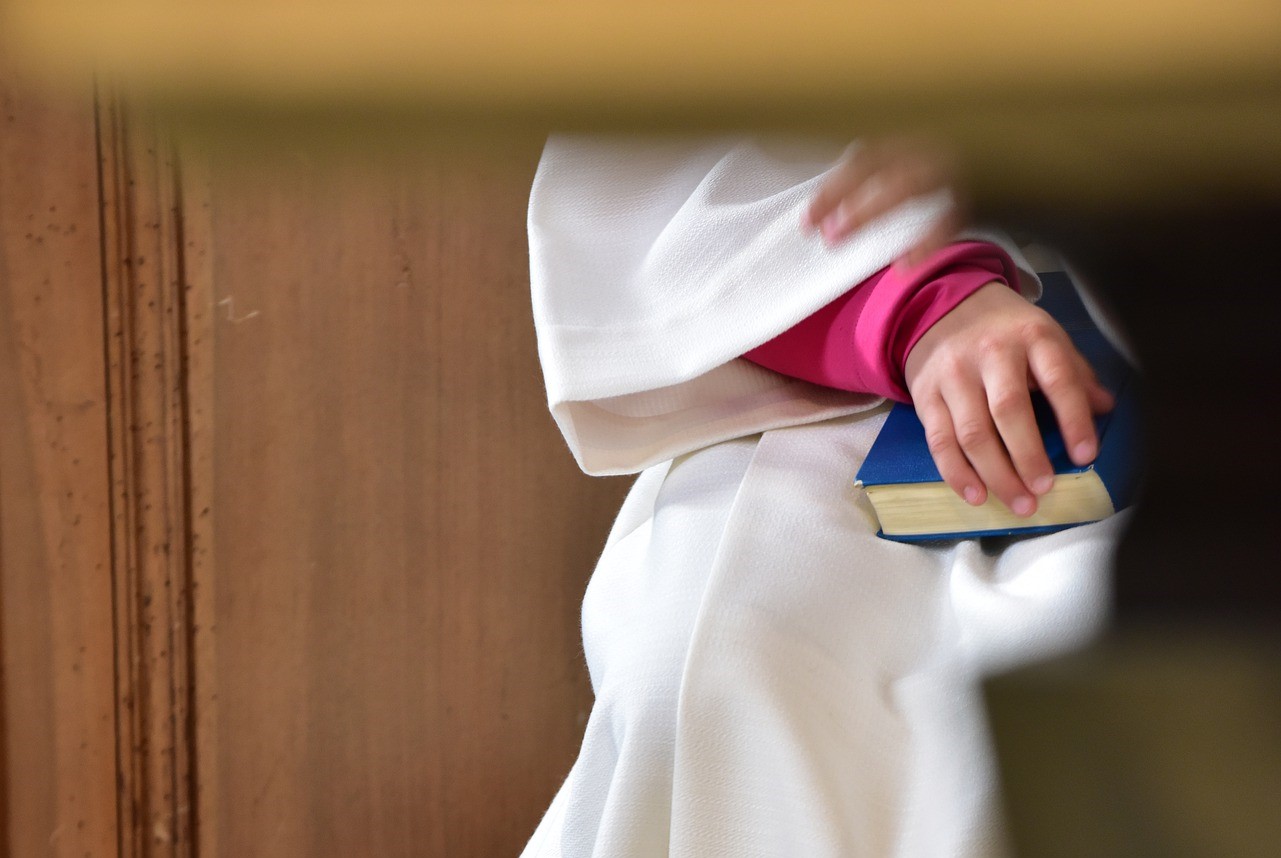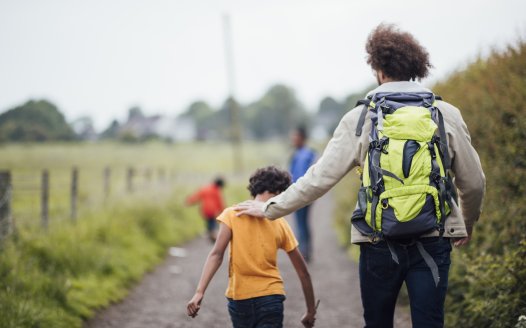Tackling child abuse in religious settings: What must happen next
Posted: Thu, 6th Oct 2022 by Richard Scorer
As the Independent Inquiry into Child Sexual Abuse draws to an end, Richard Scorer explains what the government needs to do to prevent abuse in religious settings and to ensure justice for survivors and victims.
On 20th October the Independent Inquiry into Child Sexual Abuse (IICSA) will publish its final report, bringing IICSA to an end eight years after it was first established. Over that period IICSA has investigated a wide range of institutions in England and Wales, both religious and secular. Religious organisations examined include the Catholic Church, the Anglican Church, and (more superficially) various minority religions. The final report will focus on recommendations. What do we need from it?
In my view, four recommendations are particularly important to survivors of abuse in religious settings.
1. Mandatory reporting law
The most important – as I and so many others have said before – is mandatory reporting. A mandatory reporting law imposes a legal obligation on specified individuals ("mandated persons") to report known or suspected cases of child sexual abuse to specified state agencies. Most countries now have mandatory reporting in some form including 86% of European nations, so England and Wales are out of step with the rest of the world in not having it.
Many institutions suffer from reputational pressures leading to them covering up abuse, but as IICSA has confirmed, the pressures for reputational protection at the expense of children are particularly acute in religious settings, and it was because of church scandals that the Australian Royal Commission placed such emphasis on mandatory reporting.
In England and Wales it remains legal, in 2022, for a member of the clergy to know that a child has been raped, and not to report it. This is unacceptable and IICSA has unearthed more than enough evidence to justify changing the law.
However, IICSA needs to recommend real mandatory reporting, not a faux version of it. Reforms that fall short of real mandatory reporting are likely to be ineffective. Given the systematic cover up of abuse in the Catholic Church, it may be tempting for IICSA to recommend a criminal offence of concealment of abuse. But in practice, such an offence is likely to be very difficult to prosecute to the criminal standard. Ireland introduced a "Criminal Justice (Withholding of Information on Offences Against Children and Vulnerable Persons) Act" in 2012; there has not yet been a single prosecution under the Act. We need a legal regime which works, and which changes culture.
The pressure group Mandate Now have developed a well-designed mandatory reporting model. Their draft law has several key features:
- It requires the reporting of known or reasonably suspected child sexual abuse.
- It applies to "Regulated Activities", i.e. personnel responsible for the care of children within institutional settings, not to the population as a whole (laws which purport to do the latter are generally ineffective). Some religious activities involving children sit outside the current definition of Regulated Activity, but Mandate Now has designed a clause that includes them in its legislative proposal.
- The reporting requirement is backed up by the threat of criminal penalties for non-reporting. It cannot be stressed enough that the purpose of well-designed mandatory reporting is not to criminalise people, but to embed a culture of reporting and to protect good people who report concerns from detriment. This might include bullying or being put under pressure not to report, as graphically exposed in the IICSA report on the scandal at St Benedict's Ealing. To have teeth, mandatory reporting needs a proportionate criminal sanction. When the Irish government introduced a version of mandatory reporting in 2015, following the devastating report into recent cover ups of clerical sex abuse in the Catholic Diocese of Cloyne, it failed to include any sanction for non-reporting. The Irish government argued that that mandated persons who broke the law would suffer disciplinary sanctions from their professional body. But as the Cloyne report demonstrated, the Irish Catholic Church continued to conceal abuse after publicly committing to reporting it to statutory authorities in 1996, so it is unrealistic to imagine the church can be relied upon to apply meaningful internal sanctions.
- The reporting obligation needs to apply to not just to the operators of the setting but also to all other employed, contracted or voluntary staff for the time they are personally attending such children in the capacity for which they were employed. It's not just the leadership team at the top of the organisation; we know from IICSA just how often those in leadership positions in religious organisations choose not to see or hear what their subordinates are trying to tell them, so mandatory reporting has to give all those working with children in those settings the cover to report directly. This is important: leaving the reporting in the hands of religious leaders who have failed so egregiously to do it up to now would be a recipe for further concealment.
- Finally, there can be no religious exemption or when it comes to the confessional: I explain here why such exemptions are wrong. Even Cardinal Nichols in his evidence to IICSA appeared to accept the seal of the confessional is at odds with the legal principle that the interests of the child should be paramount.
2. Empowering agencies to respond to abuse
Mandatory reporting cannot be introduced in a vacuum. Agencies have to be resourced to respond to it. Alongside it we need an overhaul of the mechanisms for oversight of safeguarding in religious settings. As the IICSA counsel observed, currently these settings are less well-regulated than donkey sanctuaries.
The inadequacies of inspection systems operated by Ofsted and other oversight bodies such as the Charity Commission were very obvious from the hearings. Achieving effective regulation is a major challenge, particularly given the sheer number and variety of religious settings, which range from large settings such as cathedrals down to house churches involving just a few people. But we need to make a start.
And when it comes to investigating abuse in religious settings, a change in police attitudes is also necessary: there has sometimes been a reluctance to investigate abuse in minority religions for fear of stoking community tensions. This has to change if victims and survivors of abuse in religious settings are to have meaningful access to justice.
3. No more time limits for child abuse civil claims
We need to abolish the unfair and antiquated law on time limits for civil claims, which has often prevented legitimate compensation claims from going forward.
The law in England and Wales states that a civil claim for childhood sexual abuse should be brought within three years of the victim turning 18. This is a totally unrealistic expectation given that the average time delay between abuse and a survivor's disclosure is 22 years. Although the courts in England and Wales do have the power to set aside this three year time limit, it should not exist in the first place. Scotland has already (in 2017) abolished the three year time limit.
Some religious organisations, particularly the Catholic Church, have been particularly aggressive in relying on limitation defences. The three year time limit needs to be removed in England and Wales too.
4. Full compensation for survivors
Finally, we need proper redress for survivors. A civil claim is often a distressing and highly adversarial process. One reform idea is to work towards a single national redress scheme, funded by the organisations where children have suffered abuse. Personally I think this a recipe for many years of argument about who contributes what. In Ireland, the Catholic Church got away with contributing vastly less than it should have done, leaving the taxpayer to pick up much of the bill for clerical sex abuse, a totally perverse outcome.
A better approach may be to ensure that organisations where abuse has occurred themselves offer proper redress to help to compensate for the terrible harm caused by abuse. The Church of England, a very wealthy organisation, has been promising a national redress scheme for some time, but keeps delaying its introduction, leaving some survivors in a desperate position. I hope that IICSA will force the pace on this, so that compensation can become easier for survivors, whilst prohibiting any removal of the opportunity for a civil claim, should the survivor wish to proceed with one.
Of course, these are not the only changes we need to see. Lots of other issues have been highlighted by IICSA, for example the dangers of unregistered religious schools.
An issue which needs much more attention is the Church of England's unjustified exemptions from statutes governing other public sector bodies such as freedom of information laws. But for survivors and those who represent them, the changes highlighted above particularly important.
During the hearings, IICSA's chair, Professor Alexis Jay, has been tight lipped about what reforms she has in mind, and the various reports issued by IICSA so far have been similarly unrevealing. The under-resourcing of society's response to child abuse has been the 'elephant in the room' throughout IICSA, and many survivors fear that the 'dead hand of the Home Office' may deter the inquiry panel from recommending the necessary reforms; we shall see. Despite several years of hearings we have no real idea as to whether IICSA will embrace these reforms or not.
And of course even if it does, we face a political battle to ensure that the reforms are implemented by government, and not watered down or abandoned. However, when the final report comes out on 20 October, IICSA will be judged primarily on how it addresses these key issues.
What the NSS stands for
The Secular Charter outlines 10 principles that guide us as we campaign for a secular democracy which safeguards all citizens' rights to freedom of and from religion.








